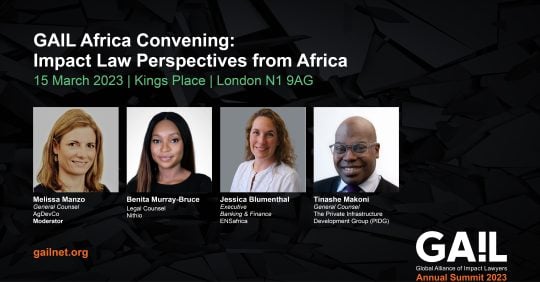Category: Video
-

Navigating ESG & Impact Regulation in the EU, UK, USA and Latin America: Comparative and In-House Perspectives
GAIL Annual Summit 2023 The content is only available to GAIL members. To access your account, log in here. If you would like to become a member of GAIL you can…
-
-
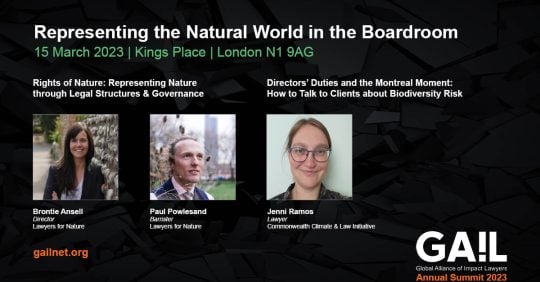
Representing the Natural World in the Boardroom
Building the Natural World into Legal Structures & Governance I Directors Duties and the Montreal Moment – How to Talk to Clients about Biodiversity Risk GAIL Annual Summit 2023 The…
-

Philanthropy with Purpose: Frameworks for Responsible Wealth Stewardship
GAIL Annual Summit 2023 The content is only available to GAIL members. To access your account, log in here. If you would like to become a member of GAIL you can…
-
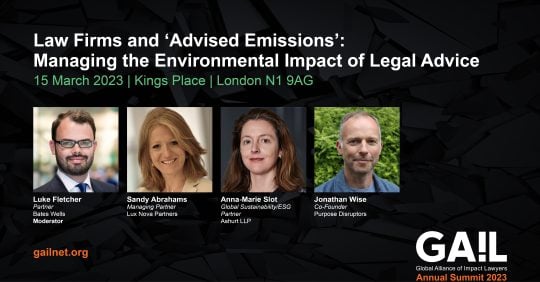
Law Firms and Advised Emissions: Managing the Environmental Impact of Legal Advice
GAIL Annual Summit 2023 The content is only available to GAIL members. To access your account, log in here. If you would like to become a member of GAIL you can…
-
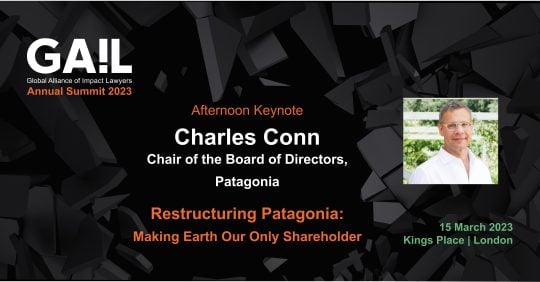
Restructuring Patagonia : Making Earth our Only Shareholder by Charles Conn
GAIL Annual Summit 2023 The content is only available to GAIL members. To access your account, log in here. If you would like to become a member of GAIL you can…
-
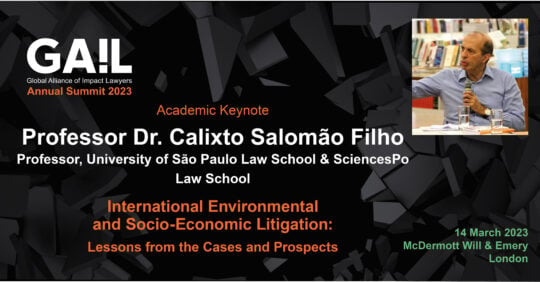
International Environmental and Socio-Economic Litigation: Lessons from the cases & Prospects – Professor Dr. Calixto Salomão Filho
GAIL Annual Summit 2023 The content is only available to GAIL members. To access your account, log in here. If you would like to become a member of GAIL you can…
-
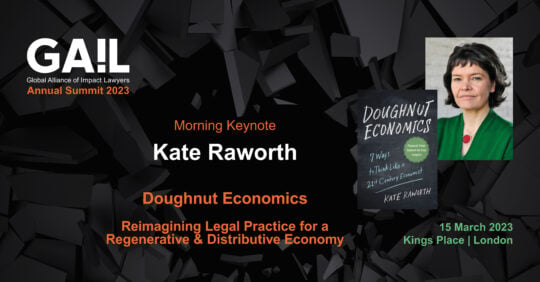
Doughnut Economics: Reimagining Legal Practice for a Regenerative & Distributive Economy by Kate Raworth
GAIL Annual Summit 2023 The content is only available to GAIL members. To access your account, log in here. If you would like to become a member of GAIL you can…
-
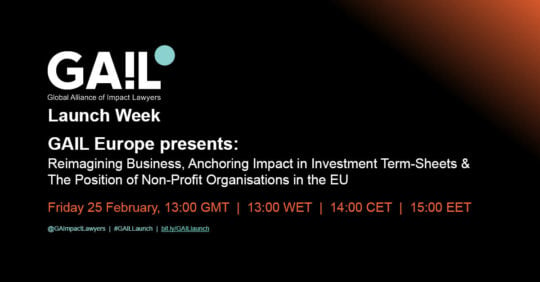
Reimagining Business, Anchoring Impact in Investment Term Sheets and The Position of Non-Profit Organisations in the EU
The content is only available to GAIL members. To access your account, log in here. If you would like to become a member of GAIL you can find out more information here
-
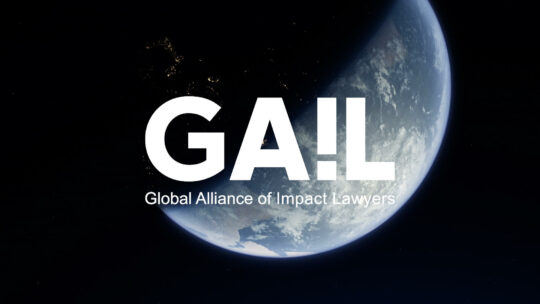
Introducing the Global Alliance of Impact Lawyers
This video introduces the Global Alliance of Impact Lawyers (GAIL) – a community of legal leaders who are using the practice of law to have a positive impact on people and the planet, and to accelerate the just transition.
 Login
Login
